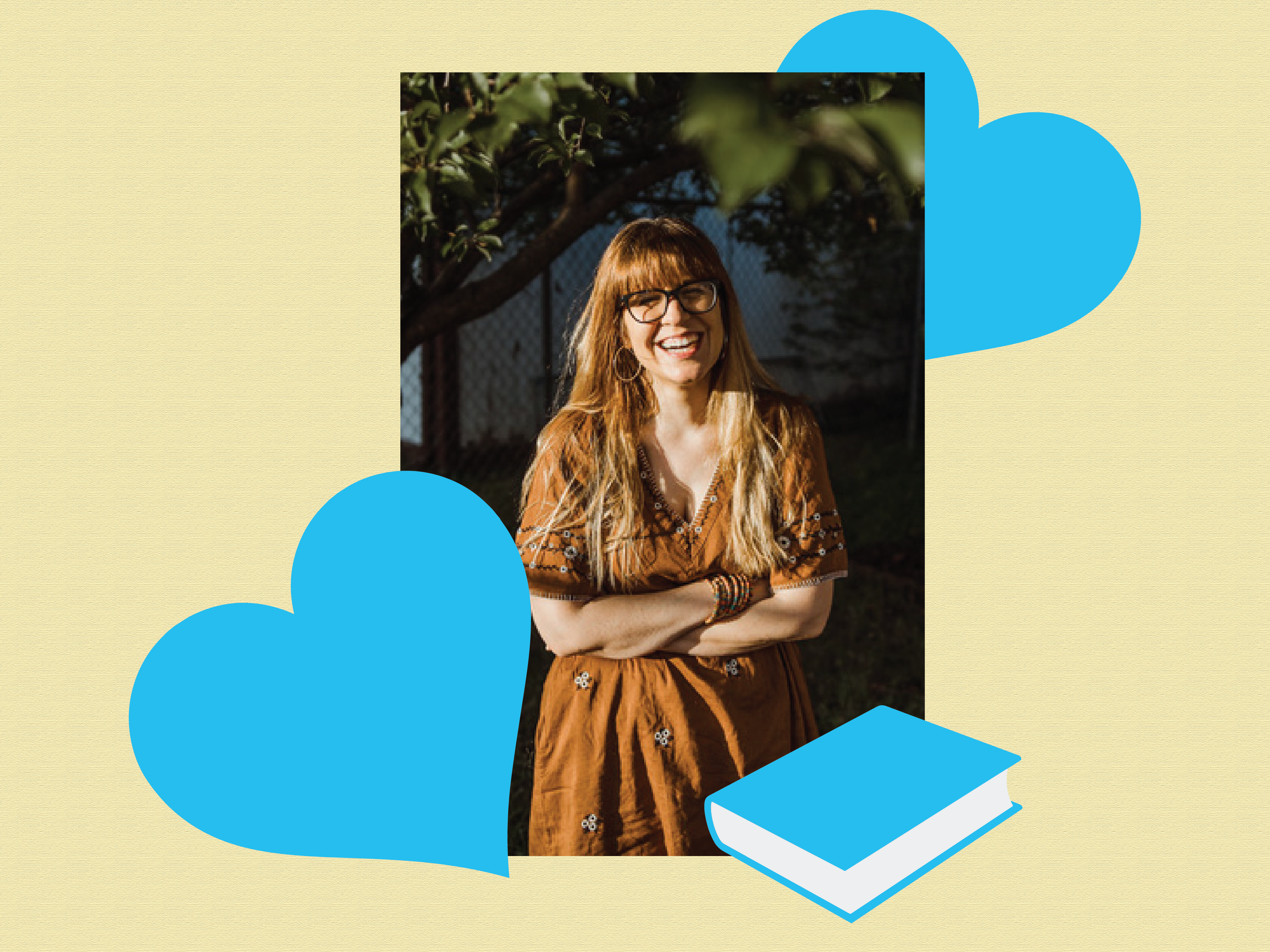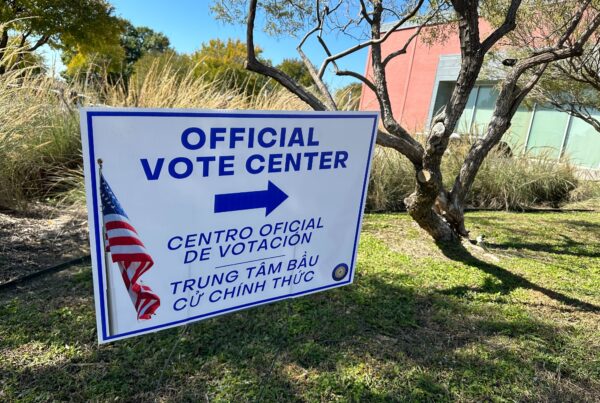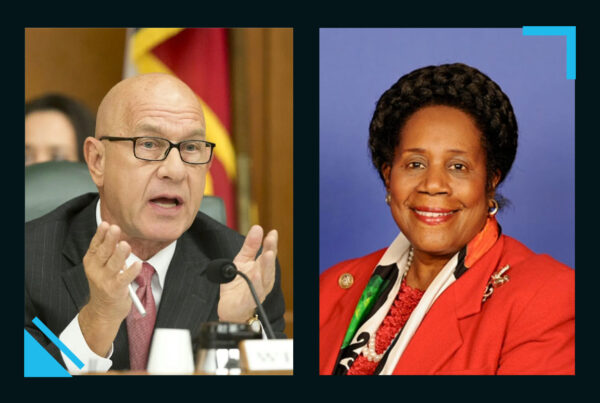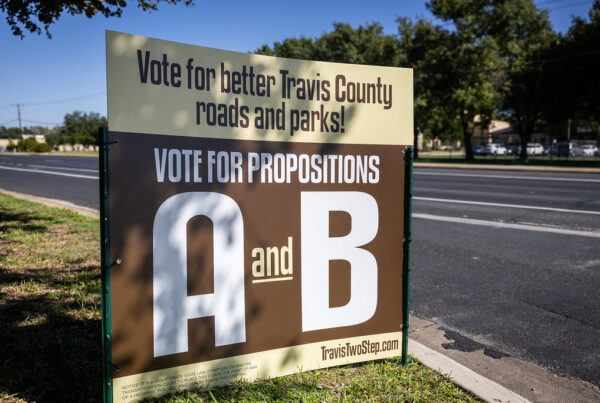If you ask someone to picture a romance novel, a lot of folks will imagine a cheap paperback with a dramatic cover. Maybe the folks on the front dressed in old fashioned clothes.
Those following more recent publishing trends might conjure up images of bright covers, cartoon people, looping text.
Romance novels have always been popular – and profitable – but the genre has risen to even greater heights in recent years. Romance sold more in 2022 than at any point since 2014, according to market research by NPD Bookscan.
Romance fans are passionate about their favorite authors and titles, but for those who’ve never picked up a romance novel, the prospect may still feel somewhat intimidating.
Ali Hazelwood, the New York Times bestselling author of “The Love Hypothesis,” has some tips to share about how to get into reading romance. Hazelwood’s young adult debut, “Check & Mate,” came out on Nov. 7, and she’ll be at the Texas Book Festival in Downtown Austin this weekend. Listen to the interview above or read the transcript below.
This interview has been edited for length and clarity:
Texas Standard: What got you into writing romance?
Ali Hazelwood: Oh, so for me, it was kind of a roundabout way to start writing romance. I was a romance reader my entire life, but I never really thought of writing until I discovered fan fiction, actually. So I write fan fiction, I’ve posted online for a bunch of different fandoms, mostly Star Trek and Star Wars.
And to make a kind of long story short, my literary agent read one of my fan fictions and she was like, “You know, I think your writing could be transferable to traditional publishing.” And that’s how I wrote my first romance.
That’s very exciting. Do you think a lot of people kind of find their way into romance novel writing because they’re fans?
I think so. I think there is quite a bit of an overlap between the shipping community, which is basically people who watch media and they find two or more characters that they really like and they really want them to be together and they write about them getting together, especially if it doesn’t happen in the show or in the book. And that community is very close to the romance community.
Can you explain some of the terms that romance fans sometimes use to describe books? I feel like the insider lingo can be confusing for folks just starting out.
Oh, my gosh, there are so many. It’s basically like another language, so I totally get it.
I would say that the most important term is the HEA, which is the “happily ever after. “And that is really the one thing that a romance needs to be a romance novel. So the couple has to end up together and they have to be happy together.
You mentioned earlier that books have been selling so much and a big reason romance books have been so successful is BookTok. BookTok is the arm of TikTok that has a bunch of influencers that mostly talk about books and they hype the books that they like. So that’s another very important term.
And then we have, you know, traditional rom-com terms like “meet cute” or “meet ugly.” So the first meeting between two characters can be great or it can be terrible.
» GET MORE NEWS FROM AROUND THE STATE: Sign up for Texas Standard’s weekly newsletters
You know what I dig about the whole romance genre is that, you know, a lot of times you hear people in publishing, writing, talk about how they work to avoid tropes. So a lot of romance writers and readers just embrace those tropes, right?
Yes, absolutely. And some romance novels are great because they take the tropes and they sort of subvert them. They do things in a slightly different way, and that surprises the reader.
But I wouldn’t say that that’s the case for every single romance novel. A lot of romance readers approach romance because they want to know what they are about to read. They really like the repetition.
If you’re wanting to escape, you don’t want to be surprised by something that’s not what you expect.
Absolutely. The genre has rules and it embraces them and I think it’s great. It’s obviously something that a lot of people need.
A big reason romance books were so successful during the pandemic was that we all wanted a happy ending. It was a rough time. So we just really wanted to know that we went into reading something and that we would end up feeling happy.
When you’re coming up with ideas and characters, are you primarily thinking about others who’ve written in the past, or do you get inspiration from folks that you might see, you know, at the coffee shop or just in everyday life? Where do you draw your inspiration?
I get most of my inspiration from other media, definitely. Other romance novels that I’ve read.
But also I’ll be watching a show and I’ll see a character and I will kind of zero in on what I like about that character. And then what I will try to do is kind of take this nugget of gold that I find that I really love and try to expand it into a story that has my voice and my vision.

Courtesy of Penguin Young Readers Group
I have to ask you about your new book “Check & Mate,” which is your Young Adult debut. What was the impetus for this?
I really just wanted to write a book set in the world of chess. And it’s actually a world that skews pretty young. Most of the emerging chess players tend to be young and then grow older within the world.
But “Check & Mate” is the story about an 18-year-old girl who is kind of a chess prodigy, and she basically decides that she’s not going to play chess anymore because of things that have happened to her within the context of the chess world. But she decides to play one last tournament and at that tournament, without really wanting to, she defeats the number one player in the world.
It’s very much the story of a girl sort of coming up in the world of chess and becoming a great chess player. And I needed it to be a younger person. And that’s how we became a young adult book.
I have to ask you about this because as passionate as people are about romance as a genre, there are others who might hide their romance behind a notebook, fearing that others will be judging them as reading something trashy or something shameful or embarrassing. Have you encountered that sort of attitude?
Absolutely. There’s a lot of people who think that romance is not worth reading.
Honestly, my response to that is “okay, fine.” There are so many different types of romance and there is so much variety and there are so many subcategories of romance. And if you’re judging all romance based on the prejudice that it’s trashy or not worth reading, it’s very hard for me to take seriously that kind of attitude.
When someone tells me, “Oh, are you ever going to write a real book?” my reaction is, “okay, I don’t think we’re going to continue this conversation.” I just feel like I’m not here to convince anyone of the validity of what I do. But I also think that this is very typical, especially for genres that have historically been, you know, dominated by women.
If someone is a little intimidated by the romance genre but is still curious about it, how do you recommend they approach finding a book that might be a good fit for them?
I would say if you are a fiction reader and you have a specific genre that you really like — it could be fantasy, could be thrillers — romance is such a vast community because there are authors who write romantic thrillers, there are authors that write “romantasy,” which is basically romance novels that are set in fantasy words.
So I would say take your favorite genre, something that you already know that you like, and find a book that is within that space, but that has a romance twist, too. There are a lot of hybrid books that I think could be amazing entry points to the romance community.













